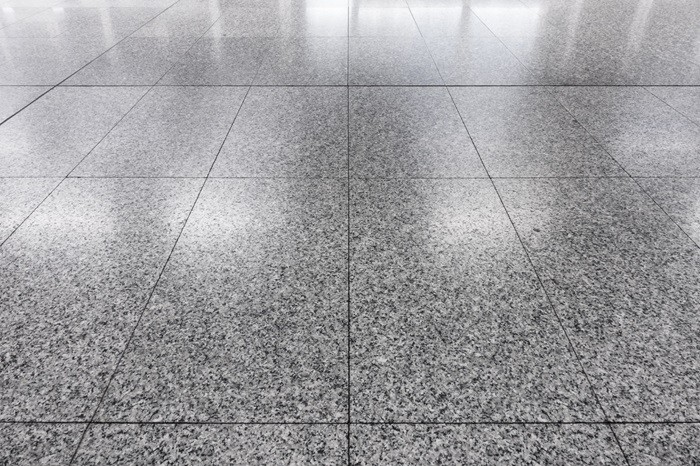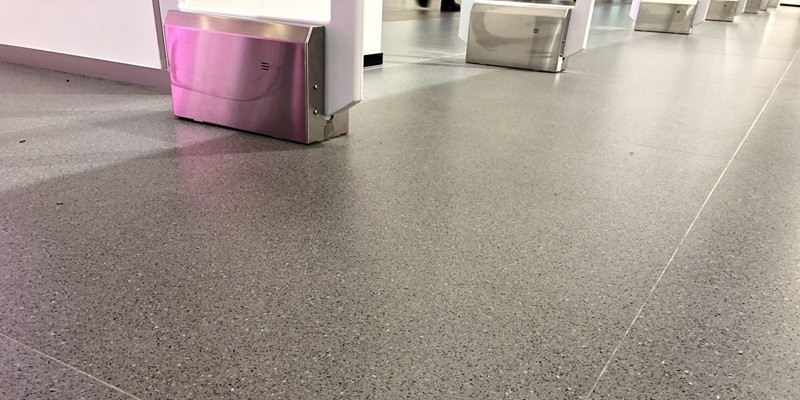Last Updated on January 15, 2025
Industrial flooring faces harsh conditions—heavy machinery, chemical spills, and constant foot traffic, to name a few. Polyaspartic coatings have emerged as a leading choice for facilities wanting durable, resilient floors. This blog explores how polyaspartic coatings can improve the longevity of industrial floors and why they’re gaining popularity in high-demand spaces.
What is Polyaspartic Coating?
Polyaspartic is a hybrid material derived from polyurea, known for its fast-drying, tough characteristics. Unlike traditional coatings, polyaspartic cures rapidly and provides industrial floors with a protective layer that is incredibly resistant to wear, stains, and impacts. Its unique chemical makeup suits it, particularly for industrial settings where durability and minimal downtime are essential. To learn more about Polyaspartic coating in Calgary, go to https://ultracoatingepoxyflooring.ca/polyaspartic-coating-calgary/.
Why Polyaspartic Coating for Industrial Floors?
Polyaspartic coating offers several practical benefits for industrial environments:
1. High Resistance to Damage
Unlike traditional coatings, polyaspartic resists abrasions, impacts, and UV exposure. This means heavy equipment, dropped tools, or sunlight won’t easily damage the flooring, making it ideal for warehouses and factories.
2. Quick Curing Time
Industrial settings can’t afford prolonged downtime. Polyaspartic’s quick drying time—often within hours—means floors can return to full use quickly, reducing interruptions to operations.
3. Chemical Resistance
Industrial floors are often exposed to oils, solvents, and chemicals. Polyaspartic coatings protect floors from staining and deterioration caused by chemical spills, preserving the floor’s appearance and integrity.
How Does Polyaspartic Coating Improve Durability?
Polyaspartic coatings are designed to withstand the tough demands of industrial use. Here’s how they boost floor durability:
1. Superior Impact Resistance
Polyaspartic coatings can withstand the pressure of heavy foot traffic, machinery, and impacts. They are more flexible than epoxy, which reduces the likelihood of cracks or chips over time.
2. Anti-Abrasion Qualities
In high-traffic zones, floors suffer from wear over time, leading to costly repairs. Polyaspartic coating creates a hard, protective layer that reduces abrasions, helping the floor maintain its appearance and structural integrity for years.
3. UV Stability for Outdoor Use
Many industrial facilities include outdoor areas, such as loading docks or outdoor workspaces. Polyaspartic coatings resist UV rays, which means they won’t fade or yellow, preserving the floor’s appearance longer than other coatings.
Key Advantages of Polyaspartic Coating in Industrial Settings
1. Customizable Thickness
Facilities can choose different thicknesses based on the type of traffic and activities in each area, optimizing protection based on specific needs.
2. High-Temperature Tolerance
Polyaspartic coatings withstand extreme temperatures without losing adhesion, which is beneficial in environments exposed to high heat or temperature fluctuations.
3. Moisture Tolerance During Application
Unlike many coatings that require completely dry surfaces, polyaspartic coatings can be applied on slightly damp surfaces, allowing for more flexible application schedules.

Is Polyaspartic Coating Right for Your Facility?
Consider these factors when deciding if polyaspartic coating is the best choice for your industrial facility:
- Budget
Polyaspartic coatings are a premium option, but the reduced need for repairs and longer lifespan can balance the upfront cost.
- Traffic Levels
Facilities with heavy machinery or high foot traffic will benefit most from polyaspartic coatings.
- Downtime Tolerance
Polyaspartic’s fast curing time is a significant advantage if your operations require minimal interruption.
Application Tips for Optimal Results
Applying polyaspartic coating requires skill to achieve maximum durability. Here are some best practices:
- Surface Preparation
Clean and prep the floor thoroughly. A smooth surface helps the coating adhere better and ensures an even finish.
- Proper Mixing
Mixing the components accurately is crucial. Follow manufacturer guidelines for the right mix ratio to avoid issues like improper curing.
- Layering for Thickness
Consider applying multiple layers for added thickness and durability if heavy machinery is involved.
Pros and Cons of Polyaspartic Coating for Industrial Flooring
Here’s a quick rundown to help weigh the decision:
| Pros | Cons |
| Extremely durable and resistant to abrasions, chemicals, and impacts | Higher upfront cost compared to traditional options |
| Fast drying, allowing for minimal downtime | Requires skilled application to avoid curing issues |
| UV stable, suitable for both indoor and outdoor use | Limited time to apply once mixed, as it cures quickly |
| Flexible and customizable to different industrial needs |
Comparing Polyaspartic to Other Flooring Options
While epoxy and polyurethane are also popular for industrial floors, polyaspartic offers advantages that set it apart:
- Epoxy vs. Polyaspartic
Epoxy coatings are durable but take longer to cure and are prone to yellowing under UV exposure.
- Polyurethane vs. Polyaspartic
Polyurethane is flexible and offers decent chemical resistance, but polyaspartic coatings generally last longer and have better impact resistance.
For more information on choosing the best epoxy flooring system for your needs, be sure to explore detailed guidelines that can help you make an informed decision.
Conclusion
Polyaspartic coating is a smart choice for industrial facilities, prioritizing durability, chemical resistance, and minimal downtime. While it may come with a higher initial cost, its long-lasting protection and low maintenance make it a cost-effective solution. By opting for polyaspartic, facilities can maintain a cleaner, safer, and more resilient workspace with less frequent repairs.
Polyaspartic coatings are worth considering if you’re looking for an investment that protects your industrial floor and reduces future repair expenses. With the right application, this coating can be the key to a durable and reliable industrial floor for years.

